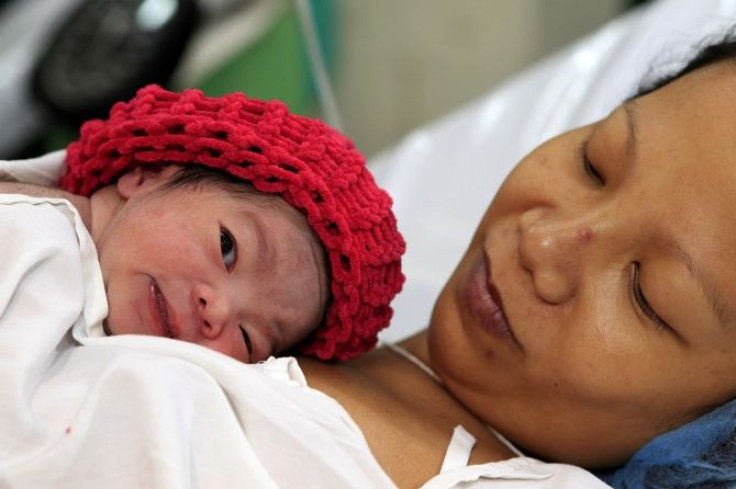Babies Leave Behind Mystery Cells That Can Stay For Decades in Their Mothers' Bodies

Scientists have recently revealed that a mother's bloodstream contains not only her own cells, but a small number of her child's as well, and some may remain in her internal organs decades after the baby is born.
While it has long been known that fetal cells migrate into a mother's body during pregnancy, scientists have not identified the types of cells that stay and their function, but in the latest study researchers were able to determine that some of the fetal cells discovered were immune cells, while others looked like undefined connective tissue.
"We and other people have shown they stay around for decades. They aren't the original cells so there must be some way they can give rise to daughter cells in the mother's body," lead author Dr. Diana Bianchi of Tufts Medical Center, told LiveScience. "We strongly believe that there are implications for the future health of women who are or have previously been pregnant."
Researchers from Tufts University said that understanding the origin and identity of these cells left behind by the baby is important to determining their potential effects on a mother's long-term health.
They noted that in the past fetal cells have been found at tumor sites in mothers, but scientists were unable to determine whether these cells were helping to destroy or speed the tumor's growth.
Bianchi and her team found cells from the placenta and fetus inside the lungs of late-term pregnant mice, and while researchers still can't figure out how fetal cells get across the placental into the mother, they suggest that there could be some leaky spots in the cells that form the barrier between the infant's blood and the mother's blood in the placenta in late term pregnancy.
Researchers had mated a male mouse that had two copies of the green fluorescent protein gene with a normal female. The fluorescent was present in every offspring he fertilized, enabling researchers to recognize and track the fluorescent signal and separate foreign cells from the mother's own cells.
Researchers analyzed the genetics of the collected fetal cells, and found immune cells and undifferentiated cells that make up the connective tissues, called mesenchymal cells that matched cells from the placenta and fetus.
Scientists suggest that the fetal immune cells may help ensure that the mother's immune system doesn't attack the fetus and reject it as a foreign invader, but they are still unsure about the function of the undifferentiated mesenchymal cells.
They speculate that the undefined connective tissue cells could play a role in regenerating or healing the mother's tissue.
Fetal cells have not only been found on tumor site, but they've been found integrated into lung tissue and maternal heart tissue.
"They are younger cells and they do appear to have different capabilities," Bianchi said. "That's an area for future research: to determine if an undifferentiated cell from the fetus has different regenerative capability than the mother's own stem cells."
The findings were published June 6 in Biology of Reproduction's Papers-in-Press.



























